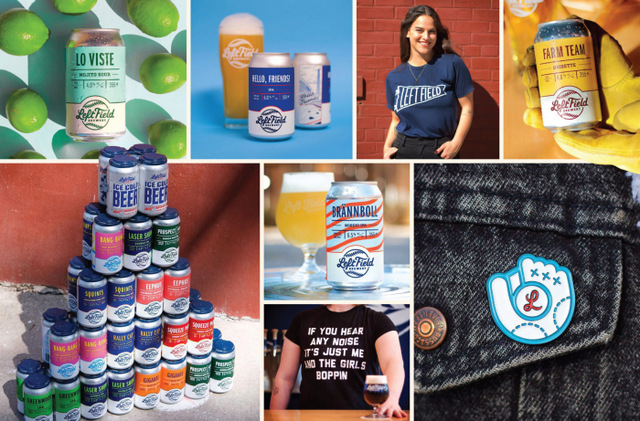
This column was provided by CODO Design, a food and beverage branding firm, and authors of Craft Beer, Rebranded. This book (and companion workbook) is a step-by-step guide to help you map out a successful strategy for rebranding your brewery. If you’d like to discuss your brewery’s branding, shoot Isaac an email anytime: [email protected]
In early 2019, we had the pleasure of helping Left Field Brewery navigate a subtle brand refresh and packaging update. The resultant work was overwhelmingly well received — a testament to how popular Left Field is, more than how good a job CODO did, I suspect (though we’ll take all the credit we can get).
We’ve continued working with Left Field on a few key product launches since the big refresh and have been consistently impressed by how nimble Mandie and her team have been before and throughout the Covid pandemic.
It’s been a little over a year since we launched their refresh and we figured it would be a good time to catchup with Mandie to talk shop and see how Left Field is continuing to strengthen their brand, improve quality and further enmesh themselves throughout Toronto.
Isaac (CODO): Starting off, please introduce yourself and Left Field Brewery.
Mandie: Hi! I’m Mandie Murphy from Left Field. Together with my partner Mark, I founded the Left Field Brewery, a community minded, baseball loving brewery in the east end of Toronto, Ontario, Canada. Before Left Field, I worked in beverage alcohol and packaged goods marketing. Mark is a Chartered Accountant who left his career to attend brewing college, despite my initial opposition to the idea. We started Left Field as a contract brewery and quickly knew we wanted a space of our own to call home. For us, the brewery has always been an opportunity to bring people joy through great beer, community and shared experiences.
What parallels do you see between brewing and baseball?
So many! Naturally, there’s the idea of the continuous training and dedication that’s needed to hone the specific skills for both. There’s the social aspect of the game itself being about community and shared experiences in the same way that our local craft breweries and taprooms facilitate these spaces and experiences for us. Baseball and beer are things that as fans, we love, we are passionate about and that we can connect over. As a long game and a relatively slow sport, baseball gives spectators the chance to be together with others of shared interests and of course enjoying a beer together through that experience is the quintessential fan experience.
In both cases, the super-fan of a baseball team knows about every trade, stat and big play in the same way that a super-fan of a brewery would know about every new release, hop variety, brewer and would sport the brewery’s gear as a badge of who they are and what’s important to them.
At their core, both baseball and craft beer share values like integrity, sportsmanship, teamwork and community.
Do you think the baseball-themed branding and story has been limiting in any way?
I don’t. Whenever we’re asked this question, we like to joke that there are at least 4 train inspired breweries in our market and nobody can argue that baseball is at least as popular as locomotives.
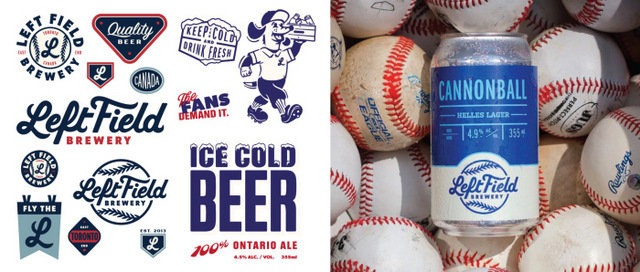
What role has branding played in growing your presence throughout Toronto?
The baseball theme gives us the opportunity to tell stories about the game’s rich tradition, history and quirks which we have a lot of fun with. Baseball also gives us the opportunity to tie everything together thematically, so that if someone comes across our baseball bat tap handle they might think “oh yeah, that baseball brewery with the beer I really liked” (hopefully). In its simplest form, we enjoy sharing the stories of the sport that we love with others.
In a more strategic sense, the Left Field brand is about a lot more than baseball. As we’ve grown, knowing who we are and who we want to be in the minds of beer drinkers has been really important in every decision we make. The hope is that all of these small decisions will ladder-up to a stronger brand of authenticity, quality, integrity and community to name a few.
How important is story to the Canadian beer consumer?
Very, I think. Stories help us feel connected. If you know something about where your beer came from, the ingredients chosen, how it was made, what inspired its name, what values the company who made it has, etc., you are almost certainly more likely to choose it over something else. I think this is true for today’s consumer in general and that it’s so much bigger than beer.
I suppose we should discuss Covid for a moment — how has your business been impacted by Covid? How are you all weathering this?
Frankly, as a small business owner it has been terrifying. That said, we are weathering it pretty well and every day I remind myself that we have a lot to be thankful for. Initially when bars and restaurants closed and we had to close our taproom, we lost 50% of our business overnight. Fortunately, we already had a well established online store and were legally able to distribute directly to people’s homes. Our all star licensee (on premise) sales team pivoted to put together a free home delivery program using that platform almost overnight. Our tap room team members and sales people started routing deliveries and packing orders and we rented some vans and started delivering beer directly to people’s doorsteps.
We were also fortunate to have a decent number of retail listings in grocery stores and our provincial liquor stores and those sales spiked immediately. We only had to shut down brewing for 2 weeks and looking back, probably shouldn’t have slowed production at all given some of the summer inventory shortages we were faced with.
It certainly hasn’t come without its challenges and we’re pretty worried about the long-term repercussions that this will have on the hospitality industry overall. That said, we’re faring pretty well and just taking it day by day.
You recently launched a stand alone brand, Ice Cold Beer. Can you walk us through the thinking behind this name and style and your decision to release it as a flagship right out of the gate as opposed to testing it in the market first as a more ephemeral release?
In our annual big ideas meeting, Mark put this one on the table and we all immediately got really excited about it. Ice Cold Beer is a fun, easy going, easy drinking beer that reminds us that beer doesn’t have to be so serious—but that it can be if you want it to be and that as producers, we take ingredient sourcing seriously. Ice Cold Beer is a blonde ale made with 100% local (Ontario) ingredients and drinks like a “beer that tastes like beer”—which is something we get asked for all the time being an IPA and sour-focused brewery. We call it a 100% Ontario Ale. It’s the beer you’d want to drink in the stands on a hot day while watching the game. The hawker in the aisle would be walking up and down the steps shouting out “GET YOUR ICE COLD BEER HERE.” It’s 4.5% ABV, crisp, clean, clear, cold and simple.
We are so hesitant to call anything a ‘flagship’ but we were all so excited about this one and hoped our fans would be too. We had planned to release it on the first day of the 2020 Major League Baseball season through a series of “First Pitch” events across the province. Covid happened and baseball was cancelled but we launched the beer anyway and immediately couldn’t keep up with production. It quickly surpassed Greenwood IPA as our top selling beer and has been a huge success for us so far. We tend not to decide which beers are flagships and which are rotationals or seasonals, we let the sales results speak for themselves to a degree. There’s a little more strategy to it than that, but essentially, if a brand sells well, we keep making it and eventually it will become a core brand. When a brand’s sales start to taper off, we look to replace it with something that sells better. It’s important for us to keep adapting the lineup to deliver on what our customers want.
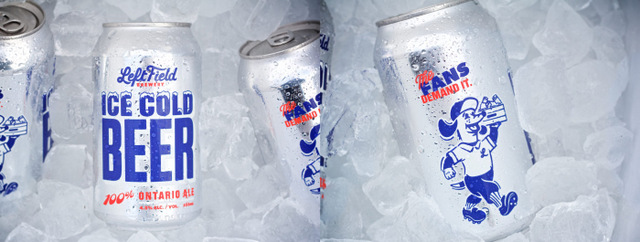
What is one thing you’d like to see change within the craft beer industry?
Quality focus. I’d like to see more breweries making hard decisions about their beer, even when it’s inconvenient or expensive. We all need to remember that one bad experience from a new craft drinker doesn’t only leave a mark on the brewery itself, but is likely to turn that person away from craft beer altogether. Think about the bigger picture before the bottom line and take a long-term view for not only your company but the industry.
If our industry wants to retain the most talented professionals — brewers, scientists, engineers, marketers, servers, sales people, etc. we need to stop relying on how “fun” working at a brewery is as a form of compensation and treat employees like the professionals that they are. We have the ability to attract great talent as an industry because of the perks, ‘fun’ work and culture but again, we should be taking a long-term view and looking at industry retention to take us to the next level
Read the rest of this conversation over at CODO’s site.
Craft Beer, Rebranded (and its companion workbook) are a step-by-step guide to help you map out a successful strategy for rebranding your brewery. Based on CODO Design‘s decade of brewery branding experience, this book will help you weigh your brand equity, develop your brand strategy and breathe new life into your brand. Whether your brewery is three years old or 30, Craft Beer, Rebranded is your guide to attracting new audiences, selling more beer and positioning your brand for the long haul.
Read and buy it now at: www.craftbeerrebranded.com

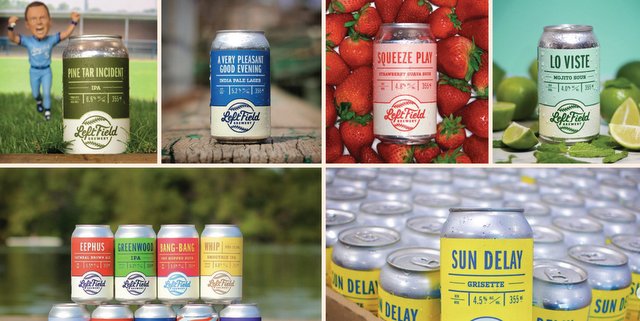
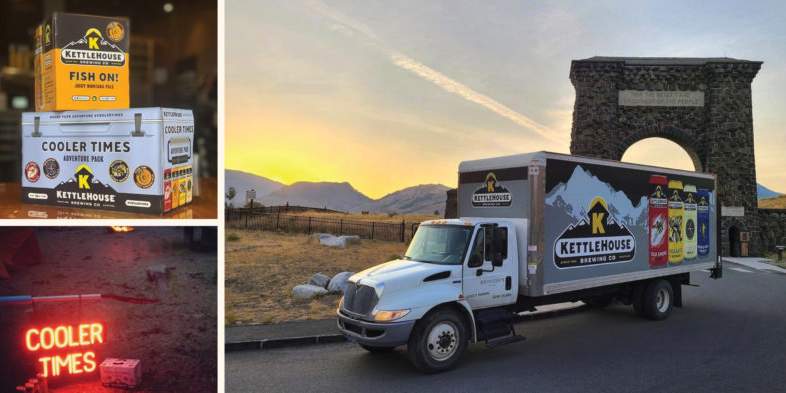
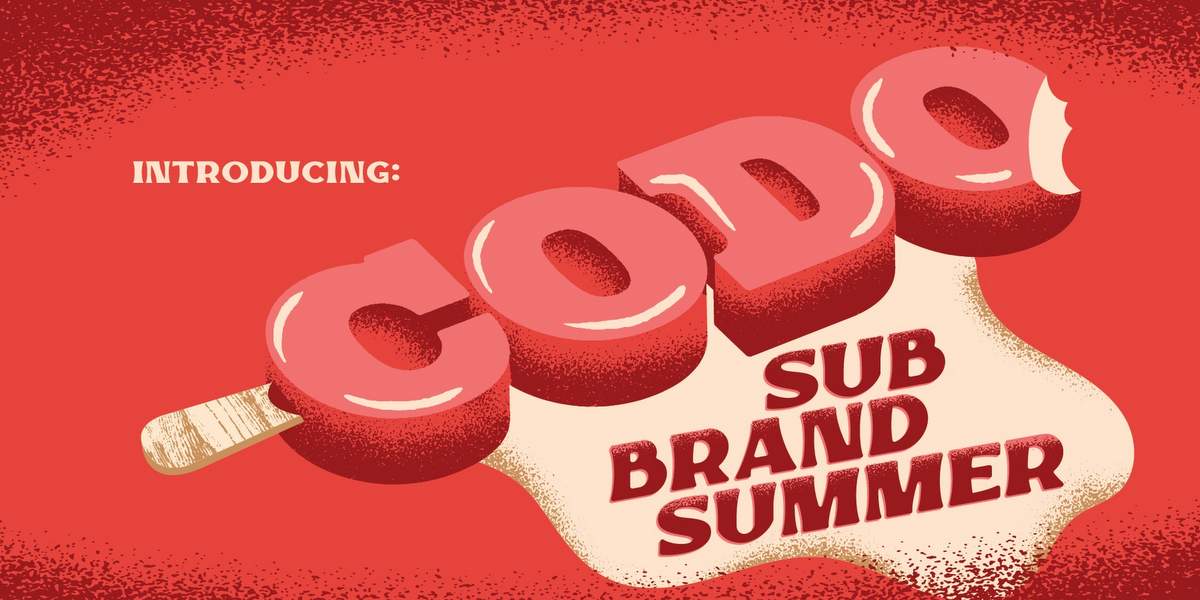
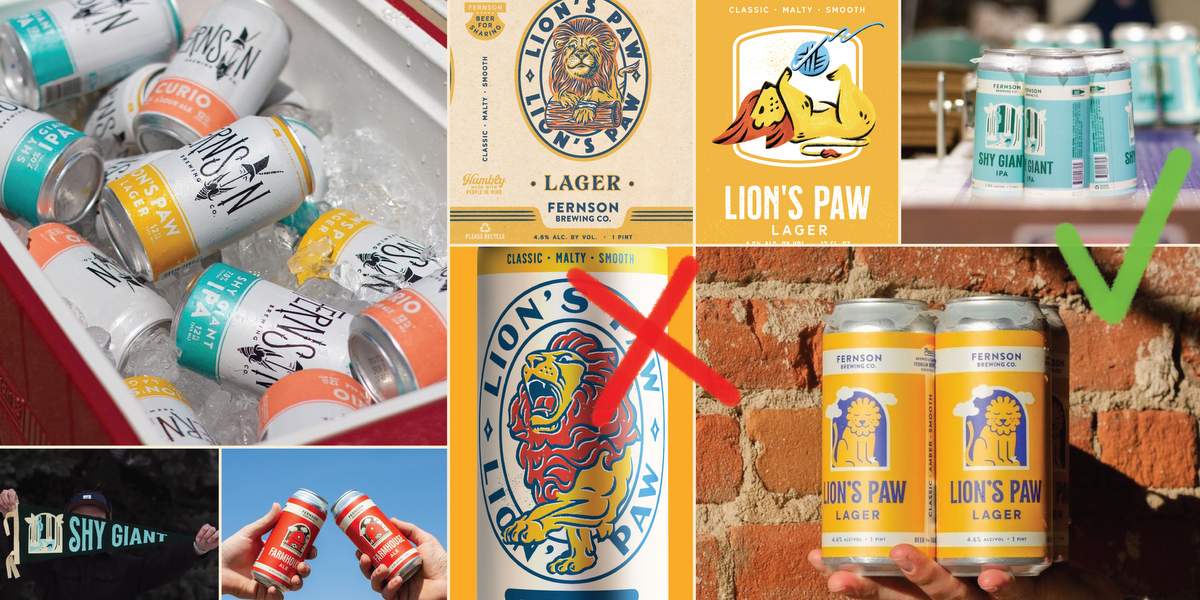
Mike Girard says
@CODODesign @LFBrewery So fun!